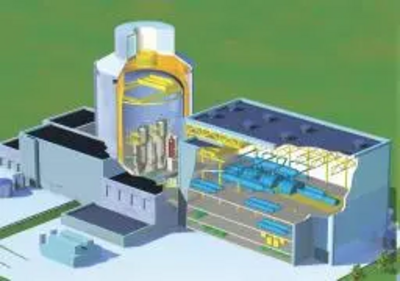Are the nuclear plans already drawn up?

The debate on future energy policy for the UK was thrown open this week at the start of the public phase of the Government's Energy Review. But sceptical voices were asking whether the review was really committed to looking at all of the options or whether there is already tacit acceptance in government of the need for new nuclear build.
But all sides agree that there is a need for radical action to provide for Britain's energy needs in the coming decades. Tony Juniper, Executive Director at Friends of the Earth, said:
"UK energy policy is at a crossroads. We can tackle climate change and meet our energy needs by cutting energy waste, harnessing the power of renewables and using fossil fuels more efficiently. The Government must set us on the path to a clean, safe and sustainable future and turn its back for once and for all on the failed, dangerous and expensive experiment of nuclear power"
A separate review of the Government's failing climate change programme is expected within weeks. Emissions of carbon dioxide have increased by 5.5 per cent since Labour came to power.
Launching the energy review Alan Johnson, Secretary of State for Trade and Industry, said:
"I want the widest possible engagement in this vital debate. We need to look at the risks to security of supply, our climate change commitments and, to the long term, to make sure we take the necessary action. There is not a do nothing option.
"We start from a strong base. We have enjoyed some of the cheapest prices in Europe for a decade now despite recent increases. We have lifted four million households out of fuel poverty since 1997 and our economy is on track to meet our Kyoto targets on climate change. We're getting more energy from renewables than ever before.
"But there are important challenges ahead and the consultation document serves as a wake up call. Global fossil fuel prices are on the rise and we're becoming a net importer of oil and gas, like many other leading economies, as production from the North Sea declines. In a world of heightened concerns about energy security, highlighted by the recent dispute between Russia and the Ukraine, we need to look carefully at the risks of this new situation.
"By 2020, coal and nuclear power plants generating about 30% of today's electricity are expected to have closed. Companies will need to decide how this capacity should be replaced. These are big investment decisions so the Government needs to provide a clear framework. If gas, as well as renewables, were to fill the gap, how comfortable will we be relying on imports for 80% of our supplies? And what would be the impact on our ability to reduce carbon emissions?"
Energy Minister Malcolm Wicks, who is leading the Review, said:
"We set out today the energy challenges. They are complex, interrelated and call for a rational, evidence-based and grown-up debate. There is no single simple option that will answer all the questions we're asking and no tick-box 'yes' or 'no' answers.
"As well as energy supply we also need to look at demand. I am determined that we make the connection between this review and the energy we consume in our everyday lives. We are all part of the problem and we need to become part of the solution.
"Thirty per cent of energy is used in our homes and the plasma TV generation is increasingly packing those homes with consumer electronics, domestic appliances and gadgets, often left needlessly on standby. This squanders more than £740 million worth of energy and results in over four million tonnes of excess carbon dioxide emissions every year, significantly contributing to climate change. One unnecessary 100W light bulb left on in every home requires 2.5 Gigawatts, which takes the equivalent of two sizeable power stations to supply.
"If we are going to make the best decisions for our energy future, we all, experts and public alike, need to engage constructively in the debate over the coming months."
The key questions posed by the consultation document are:
- What more could the Government do on the demand or supply side for energy to ensure that the UK's long-term goal of reducing carbon emissions is met?
- With the UK becoming a net energy importer and with big investments to be made over the next twenty years in generating capacity and networks, what further steps, if any, should the Government take to develop our market framework for delivering reliable energy supplies? In particular, we invite views on the implications of increased dependence on gas imports.
- The Energy White Paper left open the option of nuclear new build. Are there particular considerations that should apply to nuclear as the Government reexamines the issues bearing on new build, including long-term liabilities and waste management? If so, what are these, and how should the Government address them?
- Are there particular considerations that should apply to carbon abatement and other low-carbon technologies?
- What further steps should be taken towards meeting the Government's goals for ensuring that every home is adequately and affordably heated?
Comments are also invited on:
- The long-term potential of energy efficiency measures in the transport, residential, business and public sectors, and how best to achieve that potential.
- Implications in the medium and long term for the transmission and distribution networks of significant new build in gas and electricity generation infrastructure.
- Opportunities for more joint working with other countries on our energy policy goals.
- Potential measures to help bring forward technologies to replace fossil fuels in transport and heat generation in the medium and long term.
The issues will be looked at in the context of the Government's policies for competitiveness and sound public finances.
